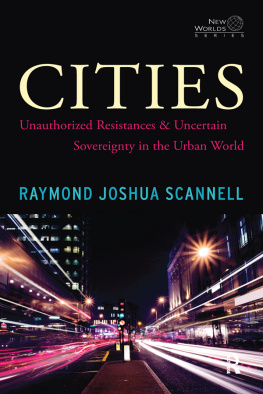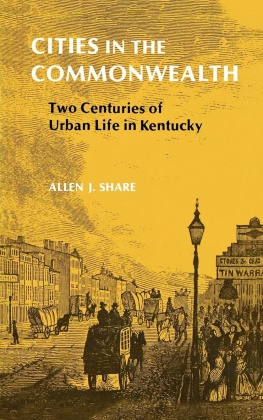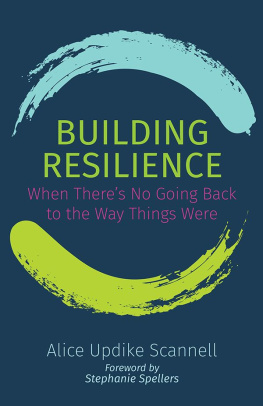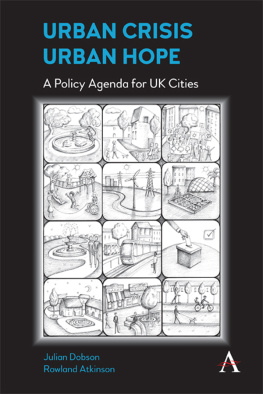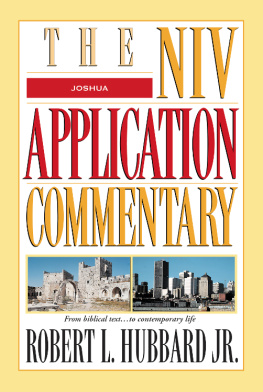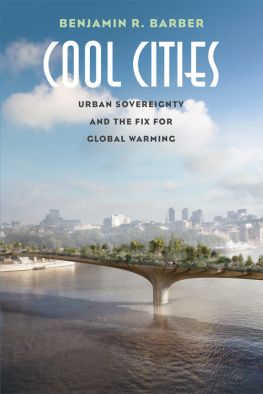CITIES
A New Series from Paradigm Publishers
Edited by Charles Lemert
Deploying Ourselves: Islamist Violence and the
Responsible Projection of U.S. Force,
David A. Westbrook (2011)
FORTHCOMING TITLES
On Time and the World-System, Immanuel Wallerstein
America 3,000, Charles Lemert
Black Men: How Does It Feel to Be a Problem? A1 Young
Virtual Epidemics, Monica Achitoff Gray
First published 2012 by Paradigm Publishers
Published 2016 by Routledge
2 Park Square, Milton Park, Abingdon, Oxon OX14 4RN
711 Third Avenue, New York, NY 10017, USA
Routledge is an imprint of the Taylor & Francis Group, an informa business
Copyright 2012, Taylor & Francis.
All rights reserved. No part of this book may be reprinted or reproduced or utilised in any form or by any electronic, mechanical, or other means, now known or hereafter invented, including photocopying and recording, or in any information storage or retrieval system, without permission in writing from the publishers.
Notice:
Product or corporate names may be trademarks or registered trademarks, and are used only for identification and explanation without intent to infringe.
Library of Congress Cataloging-in-Publication Data
Scannell, Raymond Joshua.
Cities : unauthorized resistances and uncertain sovereignty in the urban world / by Raymond Joshua Scannell.
p. cm.
Includes bibliographical references and index.
ISBN 978-1-59451-980-2 (hardcover : alk. paper) ISBN 978-1-59451-981-9 (pbk: alk. paper)
1. Sociology, Urban. 2. UrbanizationSocial aspects. 3. Cities and townsSocial aspects. I. Title.
HT151.S272 2011
307.76dc23
2011018271
Designed and Typeset by Trish Wilkinson.
ISBN 13: 978-1-59451-980-2 (hbk)
ISBN 13: 978-1-59451-981-9 (pbk)
Constant revolutionizing of production, uninterrupted disturbance of all social conditions, everlasting uncertainty and agitation distinguish the bourgeois epoch from all earlier ones. All fixed, fast-frozen relations, with their train of ancient and venerable prejudices and opinions, are swept away, all new-formed ones become antiquated before they can ossify. All that is solid melts into air.
Karl Marx and Friedrich Engels, The Communist Manifesto
The Atlas has these qualities: it reveals the form of cities that do not yet have a form or a name. There is the city in the shape of Amsterdam, a semicircle facing north, with concentric canalsthe princes, the emperors, the nobles; there is the city in the shape of York, set among the high moors, walled, bristling with towers; there is the city in the shape of New Amsterdam known also as New York, crammed with towers of glass and steel on an oblong island between two rivers, with streets like deep canals, all of them straight, except Broadway.
The catalogue of forms is endless: until every shape has found its city, new cities will continue to be born. When the forms exhaust their variety and come apart, the end of cities begins. In the last pages of the Atlas there is an outpouring of networks without beginning or end, cities in the shape of Los Angeles, in the shape of Kyoto-Osaka, without shape.
Italo Calvino, Invisible Cities
Franny recounts a dream: There is a desert. Again it wouldnt make any sense to say that I am in the desert. Its only a desert because of its ocher color and its blazing, shadowless sun. There is a teeming crowd in it, a swarm of bees, a rumble of soccer players, or a group of Tuareg. I am on the edge of the crowd, at the periphery; but I belong to it, I am attached to it by one of my extremities, a hand or foot. I know that the periphery is the only place I can be, that I would die if I let myself be drawn into the center of the fray, but just as certainly if I let go of the crowd. This is not an easy position to stay in, it is even very difficult to hold, for these beings are in constant motion and their movements are unpredictable and follow no rhythm. They swirl, go north, then suddenly east; none of the individuals in the crowd remains in the same place in relation to the others. So I too am in perpetual motion; all this demands a high level of tension, but it gives me a feeling of violent, almost vertiginous, happiness.
Gilles Deleuze and Felix Guattari, A Thousand Plateaus
This book aims to break with the vocabulary often used to understand cities and to argue for a restructuring of our understanding of the social processes at work in the contemporary city. It is not intended to be a methodologically rigorous examination of a particular urban site or region. Nor is it intended to paint a Dickensian picture of a third world being pillaged by rich nations and rich men. It does not strive to arouse ethical ire against the state of the world as it is. To the extent that most books written in that vein are effective, they are often also hysterical and do not ultimately adopt a philosophy particularly at variance from that of those institutions and bodies they decry. Rather, this book seeks to trace a line of argument that sees developments occurring across the globein its richest and poorest regions and in all others in betweenas intimately related. The realities of the world in the late twentieth and early twenty-first centuries are such that we must reexamine many of the assumptions about how people should live, and about how they are in fact living, with a critical, perhaps cynical, but nonjudgmental approach that accepts, or strives to accept, people and populations on their own terms and as constitutive of their own realities and not on the terms that the presiding discourse would assign to them.
It is important to begin thinking outside the box about what is happening in human settlements around the world. What forces have made the world a demonstrably poorer place in the last thirty years than it was in the thirty years prior to that? And how have the impacts of global restructuring effectively reorganized the ways societies constitute themselves and approach the question of surviving in the new urban cities? There is an irony in this project, for in the process of creating a work of criticism that relies in large part on secondary sources and deals with populations and cultures that are necessarily foreign to my own, I will unavoidably assign a voice to actors on behalf of whom I cannot justify speaking. This is a risk that I have at least sought to limit by refraining as much as possible from explaining what actors are doing or why in any terms other than their own. In any event, the subaltern (groups who are socially, politically, and culturally outside of the dominant power structure; literally, people who have been silenced) do not need an academic to speak for them. They can speak for themselves very well. Its just a question of whether elites are listening to them and whether it matters if they are. In any event, in the first instance, it is an open question whether there is even a conversation.

